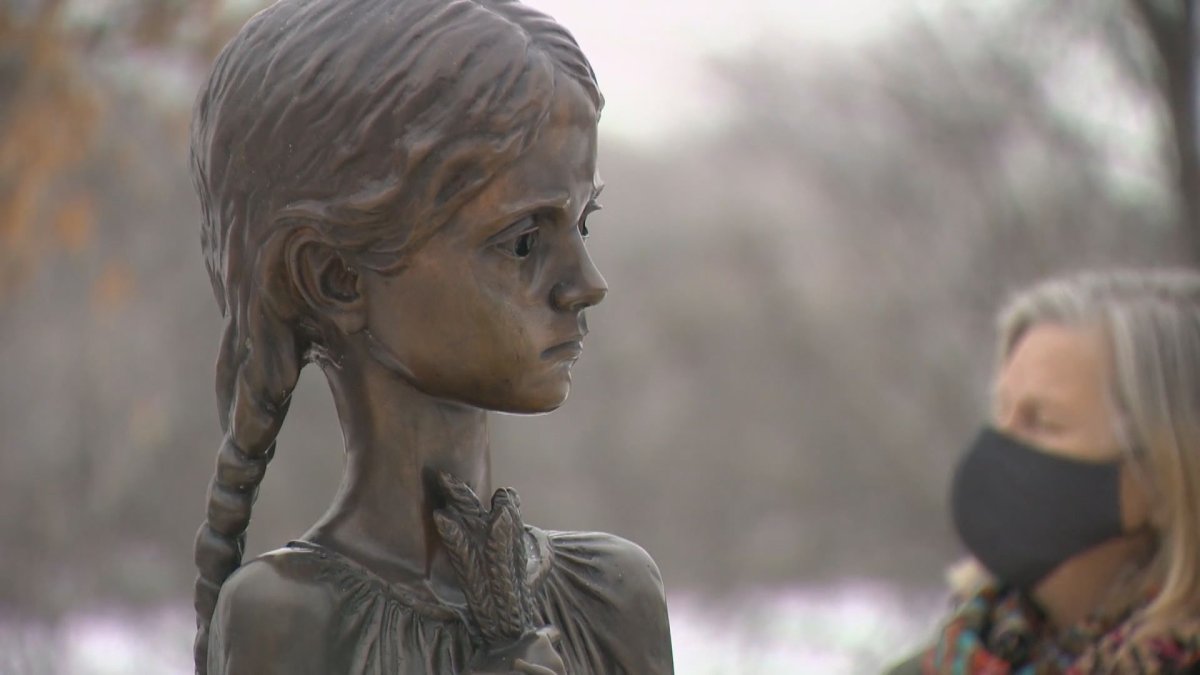A small group gathered around the statue of the thin little girl, normally standing alone in Wascana Park.

To the Ukrainian community in Regina, she is an important symbol of a defining dark period in history — Holodomor, which translates to extermination by hunger in English.
The sombre anniversary of the famine forced upon the the Ukrainian people by the Stalin-led Soviet Union in the early 1930s is typically marked inside of the Saskatchewan legislative building, drawing a significant crowd.
“We’re just happy that we can do this, even in this COVID time,” said Terry Zwarych, president of the Ukrainian Canadian Congress Regina branch, who was among the limited attendees of Tuesday’s subdued outdoor ceremony.

An estimated 10 million people died in 1932 and 1933 due to the Soviet Union’s policies.
“The crops were good,” explained Zwarych.
But they were seized during harvest and people were banned from leaving their communities to search for food.
“The Stalin regime just basically forced the Ukrainian people to starve,” Zwarych said.
“It was a genocide.”
In 2008, with the passing of The Ukrainian Famine and Genocide (Holodomor) Memorial Day Act, Saskatchewan became the first jurisdiction in North America to recognize that.
The monument around which people gathered Tuesday followed seven years later due to the efforts of the Ukrainian Canadian Congress.
An exact copy of the bronze statue located near the entrance to the National Holodomor Museum in Kyiv, Ukraine, is called Bitter Memories of Childhood.
“We lost families and families and families,” Zwarych said.
“It is a part of history where we need to make sure that memory is kept going for generations.”
Holodomor Memorial Day is recognized nationally on the fourth Saturday of November, falling this year on the 28th.
- Posters promoting ‘Steal From Loblaws Day’ are circulating. How did we get here?
- Video shows Ontario police sharing Trudeau’s location with protester, investigation launched
- Canadian food banks are on the brink: ‘This is not a sustainable situation’
- Solar eclipse eye damage: More than 160 cases reported in Ontario, Quebec




Comments